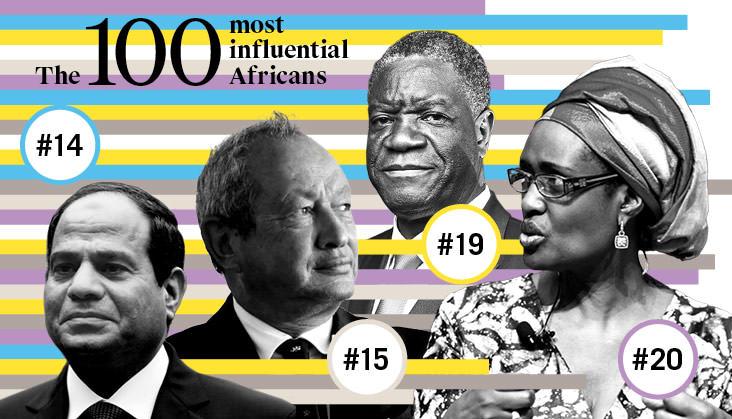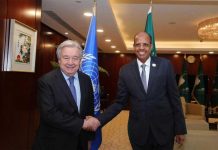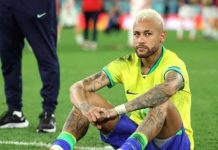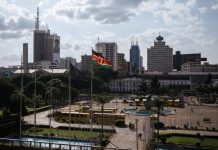Africa-Press – Mauritius. The Africa Report’s inaugural ranking of the top Africans who control the levers of power across politics, business and the arts: from billionaire barons to unpredictable peacemakers and soft-power superstars.
In September 2018, Bristow’s Randgold Resources signed a $6.5bn merger with Canada’s Barrick Gold Corp. When the opening bell rang on the New York Stock Exchange on 2 January, GOLD – the new stock for the merged company – was worth $23.75bn and Bristow was CEO of the world’s biggest gold miner by market cap.
In March, Barrick Gold withdrew its $18bn bid for its biggest rival Newmont Mining, ending a hostile takeover effort that sought to make it the world’s largest gold miner.
The two companies instead inked a deal to create a joint venture for their operations in Nevada, which will be operated and majority owned by Barrick Gold.
If Masiyiwa stands out as a Zimbabwean success story – he is the country’s first billionaire and now worth $2.3bn – today it is his philanthropy that matters.
Through his Higherlife Foundation, he has provided scholarships for more than 100,000 young Africans; funded education, health and agriculture initiatives; and mentors on Facebook.
Now he has entered the third phase: as thought leader he is on boards including the Africa Progress Panel, The Rockefeller Foundation and the Alliance for a Green Revolution in Africa.
We are working every day to invest in our communities and rural communities are no different because we believe in leaving no one behind in achieving Africa’s prosperity.
A lawyer and banker, Ogunlesi formed the private equity firm Global Infrastructure Partners (GIP) in 2006 and earned the nickname “the man who bought Gatwick Airport”.
Ogunlesi, a quiet billionaire, has still not been able to keep out of the headlines – first by being part of Donald Trump’s ill-fated Strategic and Policy Forum, which disbanded after Twitter sackings in 2017, and second by luring World Bank president Jim Yong Kim to summarily leave his job and join GIP as vice-chairman in February.
Insiders say Ogunlesi made Jim an offer he couldn’t refuse. In 2014 Egypt was suspended from the African Union (AU) due to its “unconstitutional” ousting of President Mohamed Morsi. Five years later the country’s strong-man president is chairing the organisation.
His predecessor, Rwandan president Paul Kagame, showed the potential for AU chairmanship in furthering his own and his country’s interests and Sisi is sure to follow his example, though his focus will be on security rather than internal reform.
Sisi supports the Continental Free Trade Area but faces a battle with South Africa’s Cyril Ramaphosa (#16) to get it ratified. Meanwhile at home, constitutional amendments that would allow Sisi to remain president until 2034 were approved in a referendum in April.
After the Arab Spring the Egyptian telecoms billionaire founded the Free Egyptians Party, promoting a liberal, secular agenda. He got sidelined in politics and now mainly uses TV interviews as a soapbox – recently declaring that Trump was right over China, and that he was ready to invest in Venezuela as soon as President Nicolás Maduro was gone.
People listen when Sawiris talks, as his capacity to invest can help a country’s fortunes: he says no to Saudi Arabia, but may put $300m into the Italian economy.
On 25 February his investment bank, Beltone Financial, was allowed to resume trading on the Egyptian bourse after being suspended over irregularities in an IPO.
A lot more influential than he was a year ago – when he had just taken on an ailing South Africa and the controversial cabinet of his predecessor, Jacob Zuma, which was mired in corruption – Ramaphosa has doggedly worked at untangling the country’s political and economic problems.
He explained the situation when launching the African National Congress’ (ANC) 2019 election manifesto: “After a period of doubt and uncertainty, we have arrived at a moment of hope and renewal”.
At 60%, his approval rating is higher than that of the ANC itself. His victory in the May presidential elections has also raised his profile on the global stage.
South Africa has significantly more clout than its continental peers on the global diplomatic scene: it is the only African country in the G20 and became a non-permanent member of the UN Security Council for 2019-2020. Ramaphosa will further widen his sphere internationally when he becomes the chair of the African Union in 2020.
For More News And Analysis About Mauritius Follow Africa-Press







